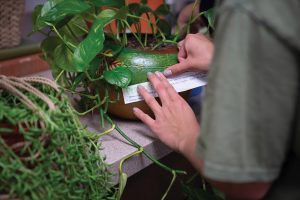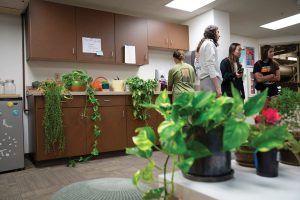The Liberal Arts for Life
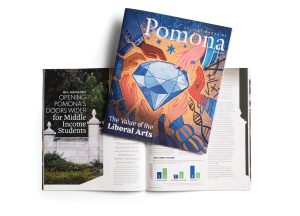
I was pleased to see your Pomona College Magazine article devoted to the value of liberal arts (Spring 2024). As one whose four years at Pomona included courses in over 20 departments, a semester in India, a history major, completion of pre-med requirements and evenings spent hanging around the music department, I loved the breadth of opportunities that Pomona provided. And, yes, some of those “non-career-prep” courses did help me in my work—for example, giving me tools to author successful textbooks and edit a scientific journal.
But the real value of my liberal arts education was that it made the non-work aspects of my life much fuller and more enjoyable. So I wish that your article had said more about this side of liberal arts.
I understand that our society these days tends to define return on investment in terms of dollars and cents, but the older I get the more I realize that it’s what makes you happy that matters, and Pomona’s contribution to that aspect of my life was squarely in the liberal arts opportunities it provided.
—Philip D. Sloane ’72
Professor of Family Medicine and Geriatrics
University of North Carolina at Chapel Hill
Praise for PCM, Aid for Middle-Income Students
Congrats on the “Value” issue (Spring 2024).
I think the cover is exceptional—eye catching, artistic, clever with math, musical and DNA symbols. The diamond representing “value” was quite creative.
The article about supporting the financially mid-level students is timely in my opinion.
Keep up the good work.
—Ron Smith ’63
Newport Beach, California
A ’60s Activist’s Take on Politicized Campuses
The subject of your piece is obviously of great interest, and I appreciate your effort to cover the waterfront in the limited space at hand. That said, I was disappointed that what strikes me as by far the most compelling issue driving the turn against liberal arts colleges—the politicization of the campus—is mentioned only briefly in your editor’s letter.
FYI, I was a political activist at Pomona in the 1960s, and having in the course of my career as a journalist moved to the right, I look back on the changes wrought by radicals like me at places like Pomona with regret and shame. It was a truly diverse intellectual campus when I arrived in 1966, far less so when I left in 1970; and on the basis of everything I see, a frighteningly narrow place today. And it’s a good guess a fair number of my fellow elderly grads feel the same. This is hardly unique to Pomona, of course, or even to colleges. My kids went to Fieldston in New York, and while it’s always defined itself as a progressive place, I’d be horrified if my grandkids were there today. And, alas, reading of the evident near-uniformity of thought in Claremont on issues of race, gender and now the Middle East, I feel very nearly the same way about Pomona.
Yours is an alumni magazine, and I understand you are not in the business of stirring the pot. Still, it’s unfortunate that as an interested alum I have to go to The Claremont Independent to find [other news coverage of campus].
—Harry Stein ’70
New York
Closer Look at Classroom Photo
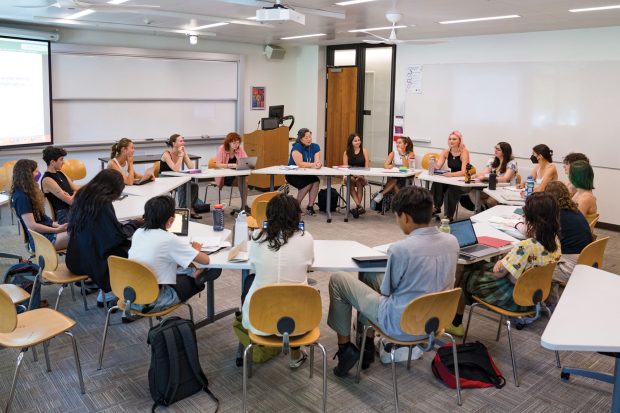
Associate Professor of Gender and Women’s Studies Aimee Bahng, right of the podium, leads a discussion in her Race, Gender and the Environment class.
It was with great anticipation that I turned to your cover story on “The Value of the Liberal Arts.” Over a lifetime, Pomona’s liberal arts education has served me well both personally and professionally.
I was briefly thrown off by reference early in the story to “the gender and women’s studies class” since it is one of the newest and least established parts of the liberal arts curriculum. This mention felt a bit like the tyranny of political correctness (pc). But I continued to read until I took a close look at the photo of a class on gender studies, which covers the top of the right-hand page in this feature article’s two-page spread. Of the 19 people seated around the table, 17 or 18 are women and only one or two are men.
Those who seek to demonize gender studies charge them with being militant feminism, a.k.a. reverse sexism in disguise. Yet they have the potential to be of great value at a time when surveys show a larger divergence in life attitudes among young women and men than in the past. The big question is whether gender studies bridge this gap or widen it. The class photo is not encouraging in this regard. It suggests Pomona is not marketing gender studies to students in a way that is equally inviting to men and women, and thus is not inclusive.
That Pomona’s magazine could overlook the glaring implication of this photo suggests it is in the grip of an ideology regarding the need to promote gender studies as the new flagship of liberal arts. In this case, PC has fallen into the trap of being pc. Please take a closer look at such messaging.
—Glenn Pascall ’64
Dana Point, California
Arrest of Protesters on Campus
First, my bona fides. My great-grandfather, Edwin C. Norton, was Pomona’s first dean. My grandfather, Ralph Lyman, put Pomona on the map by introducing European classical music to Southern California and mentoring Robert Shaw, later mentored by Arturo Toscanini. Shaw was the greatest choral conductor of his time in America.
Now the war has come to us. No surprise that. The question faced all over our country is how do those in power deal with student unrest.
I am beyond appalled by how President G. Gabrielle Starr chose to militarize her response.
—David Lyman, ’66
South Pasadena, California
Editor’s note: Read more on the April 5 arrests of 20 people, including seven Pomona students, during a masked protest in Alexander Hall.
Correction
The article “A New Community Space in the City of Pomona” on page 8 of the Spring 2024 issue incorrectly referred to David Armstrong ’62 as deceased. Armstrong, founder of the American Museum of Ceramic Art on Garey Avenue in Pomona, still visits the museum almost daily as it undergoes a major remodel. At 51,000 square feet, it is the largest such ceramics museum in the United States. Pomona College Magazine regrets the error.
Write to Us at PCM
Pomona College Magazine welcomes brief letters to the editor about the magazine and issues related to the College from the extended Pomona community—alumni, parents, students, faculty, staff, donors and others with a strong connection to the College. Write to us at PCM or mail a letter to Pomona College Magazine, 550 N. College Ave., Claremont, CA 91711. Letters should include the writer’s name, city and state of residence, class year for alumni and contact information. With rare exceptions, letters should be no more than 400 words in length. Letters are selected for publication based on relevance and available space and are subject to being edited for brevity and clarity.



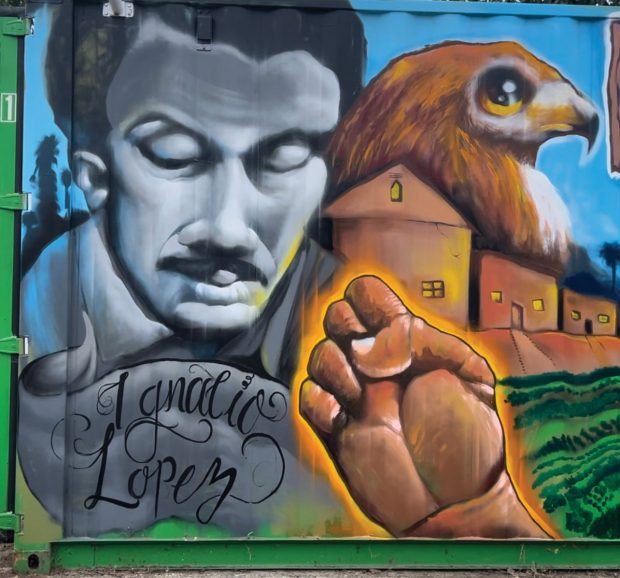

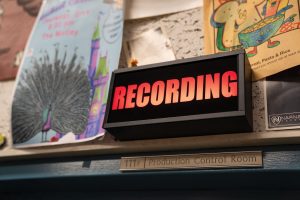


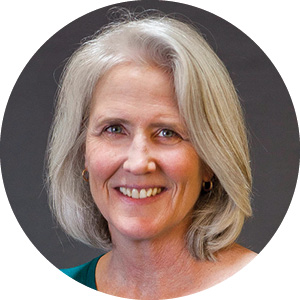

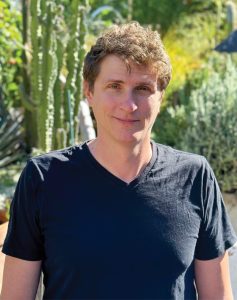


 One Day This Tree Will Fall
One Day This Tree Will Fall Quiet Voice, Awesome Power
Quiet Voice, Awesome Power How Much Are These Free Books? True Tales from the Book Nook
How Much Are These Free Books? True Tales from the Book Nook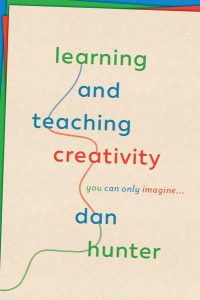 Learning and Teaching Creativity
Learning and Teaching Creativity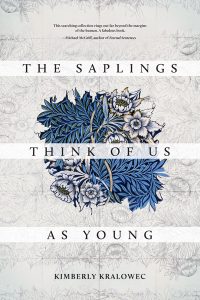 The Saplings Think of Us as Young
The Saplings Think of Us as Young Exquisite Dreams: The Art and Life of Dorothea Tanning
Exquisite Dreams: The Art and Life of Dorothea Tanning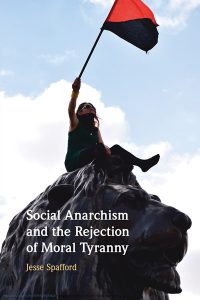 Social Anarchism and the Rejection of Moral Tyranny
Social Anarchism and the Rejection of Moral Tyranny The Improbable Tales of Baskerville Hall
The Improbable Tales of Baskerville Hall
